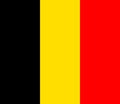NATO Summit
The President. As you know, we had a good, long dinner tonight. And we talked about only two subjects; we talked about Russia and Bosnia. We spent the first half, perhaps more than half the dinner, on Russia. And I basically gave a report about what I would be doing in Russia, and they gave me their advice about what we could do to strengthen the process of reform, create a system of support for people who had been dislocated economically, how we could build a better partnership with Russia and have the kind of future we want, with Russia being a great nation but a nonaggressive one. And it was very, very helpful. I mean, they had very keen insights, and a lot of them had just been there, so it was helpful.
Then we talked about Bosnia at some length. And I urged that we stay with the present communique, the present policy, which gives us the right to ask the U.N. for permission to use air strikes if Sarajevo continues to be shelled. We discussed some other options and agreed that we would have another discussion tomorrow about it.
So I can't say that there was any conclusion reached except that I do believe we'll stay with our present policy. I think the language in the communique will stay in, and we'll have some other discussions about it tomorrow morning.
Bosnia
Q. Was there an agreement to ask the U.N. permission to use air strikes?
The President. No, because under the procedure, what would happen is one of the member states would have to ask the North Atlantic Council, our military group, to review it to say it was appropriate and then to go to the U.N. So I think, plainly, we know that if the language stays in there and if the shelling continues, there will have to be some action taken.
So I think you can tell by what happens tomorrow. If we keep the language, which I hope and believe we will, then it's basically up to the behavior of those who are shelling Sarajevo, principally the Serbs. We'll just have to see what happens.
Aid to Russia
Q. With regard to Russia, is there a larger economic plan envisioned?
The President. Well, what they talked about today was—first of all, we have quite a large plan. We've got to dislodge some of the money that we've committed that was tied up in the international institutions. They all believe that we needed a combination of two things: We need to try to speed up the privatization, because in the end that was the real guarantor of reform—and Russia has done a phenomenal job of privatizing industries, thousands just in the last year—and secondly, that we needed some sort of social support network, an unemployment system, a retraining system, a system to train people to manage and operate businesses and banks that will enable people to deal with the dislocations that are coming. And that's basically what we talked about.
NOTE: The President spoke at approximately 11 p.m. in the Grand Place. A tape was not available for verification of the content of these remarks.
William J. Clinton, Remarks and an Exchange With Reporters in Brussels Online by Gerhard Peters and John T. Woolley, The American Presidency Project https://www.presidency.ucsb.edu/node/219051


